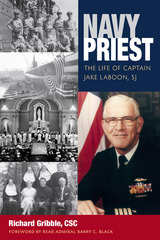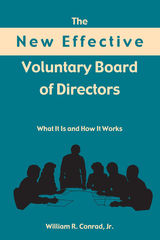7 start with N start with N


In Networks of Champions Christine A. DeGregorio identifies who in the U.S. House of Representatives took the lead in shepherding six major bills, dealing with welfare reform, drug control, international trade, farm policy, nuclear weapons testing, and assistance to the Contras, through Congress and how these champions of legislation worked with outside advocacy groups. DeGregorio finds that the champions of this legislation were drawn from a diverse group that included individuals both within and outside the formal hierarchy of leadership. The champions, who were not necessarily the prominent holders of important positions, are characterized by having knowledge of the subject matter, experience in the House, a facility for bargaining and compromise, the right committee assignments, and a commitment to hard work.
DeGregorio traces how these groups become influential and how the groups affect the policy-making process. She finds a reciprocal process in which advocacy groups use champions to express their views while champions use the resources of advocacy groups to gain influence in the House.
Based on extensive interviews with key congressional staff members and the leaders of advocacy groups, DeGregorio provides critical new insights into the legislative process. This book will be of interest to those who study the legislative process and the role of interest groups in making American policy.
". . . a substantial contribution to our understanding of advocacy in Congress." --Barbara Sinclair, University of California, Los Angeles
Christine A. DeGregorio is Associate Professor, Department of Government, School of Public Affairs, American University.

More than one million nonprofit or voluntary organizations have been incorporated in the United States, and there are countless others throughout the world. Although they range in size and purpose from small social clubs to large and complex organizations such as universities and hospitals, they all have one thing in common: a board of directors of some type. What these boards do varies as much as the organizations themselves.
The New Effective Voluntary Board of Directors provides clear answers, illustrated with graphics, to previously ambiguous and bewildering questions, such as definitions of policy, the function of boards, the role of board members, and many other issues.
Dealing with the delicate balance in nonprofit organizations, the legal implications of serving on a board, the nonprofit leadership and management model, and other matters of concern, William Conrad applies his lifelong experience to providing a comprehensive, practical, and concise tool for those involved in the unique challenges associated with the leadership and management of nonprofit and voluntary groups.
With nearly 30,000 copies of earlier editions of this work in print, Swallow Press is pleased to publish the new, updated, and revised edition of this classic in its field.


Drawing on his five decades of leadership experience, William Byron outlines in this volume the theory, practice, and purpose of leadership. Intuition, humility, empathy, simplicity of lifestyle, and sound speaking and writing skills are all essential for effective leadership, and Byron devotes separate, in-depth chapters to each. Aimed at an audience now largely overlooked by leadership literature, Next Generation Leadership will appeal to the business, government, religion, and nonprofit leaders of tomorrow.

The Civil War was barely over before Southerners and other students of the war began to examine the Confederate high command in search of an explanation for the South's failure. Although years of research failed to show that the South's defeat was due to a single, overriding cause, the actions of the Southern leaders during the war were certainly among the reasons the South lost the war.
In No Band of Brothers, Steven Woodworth explores, through a series of essays, various facets of the way the Confederacy waged its unsuccessful war for secession. He examines Jefferson Davis and some of his more important generals, including Pierre G. T. Beauregard, Leonidas Polk, Joseph E. Johnston, Robert E. Lee, James Longstreet, and Thomas J. "Stonewall" Jackson; the Confederacy's strategic plans; and the South's success in making competent officers out of men with very little military preparation.
Woodworth particularly looks at the personalities and personal relationships that affected the course and outcome of the war. What made a good general? What could make an otherwise able man a failure as a general? What role did personal friendships or animosities play in the Confederacy's top command assignments and decisions? How successful was the Confederacy in making competent generals out of its civilian leaders? In what ways did Jefferson Davis succeed or fail in maximizing the chances for the success of his cause?
In analyzing the Confederate leadership, Woodworth reveals some weaknesses, many strengths, and much new information. No Band of Brothers will be an important addition to Civil War scholarship and will be welcomed by professional historians, amateur historians, students, and the general reader alike.

Globalization has become an inescapable fact of contemporary life. Some leaders, in both the East and the West, believe that human rights are culture-bound and that liberal democracy is essentially Western, inapplicable to the non-Western world. How can civilized life be preserved and issues of human rights and civil society be addressed if the material forces dominating world affairs are allowed to run blindly, uncontrolled by any cross-cultural consensus on how human values can be given effective expression and direction?
In a thoughtful meditation ranging widely over several civilizations and historical eras, Wm. Theodore de Bary argues that the concepts of leadership and public morality in the major Asian traditions offer a valuable perspective on humanizing the globalization process. Turning to the classic ideals of the Buddhist, Hindu, Confucian, and Japanese traditions, he investigates the nature of true leadership and its relation to learning, virtue, and education in human governance; the role in society of the public intellectual; and the responsibilities of those in power in creating and maintaining civil society.
De Bary recognizes that throughout history ideals have always come up against messy human complications. Still, he finds in the exploration and affirmation of common values a worthy attempt to grapple with persistent human dilemmas across the globe.
READERS
Browse our collection.
PUBLISHERS
See BiblioVault's publisher services.
STUDENT SERVICES
Files for college accessibility offices.
UChicago Accessibility Resources
home | accessibility | search | about | contact us
BiblioVault ® 2001 - 2024
The University of Chicago Press









